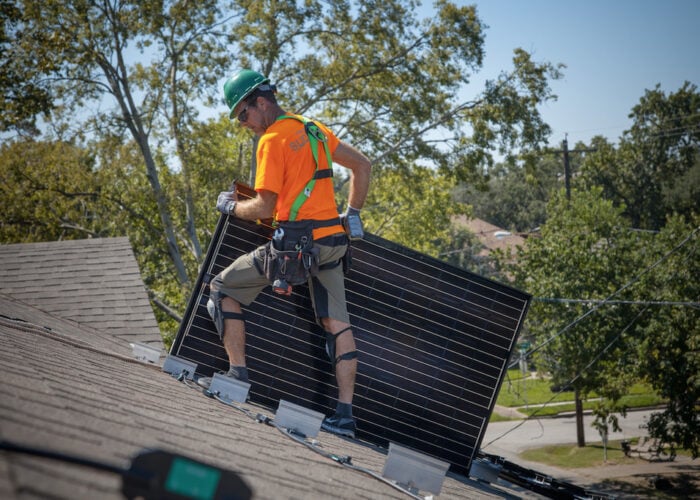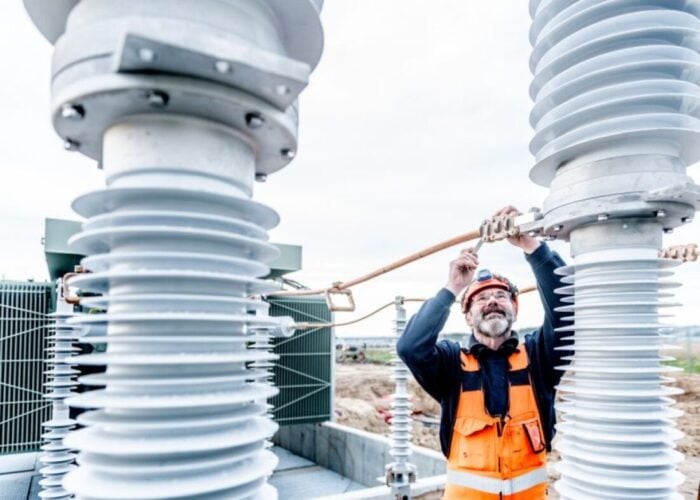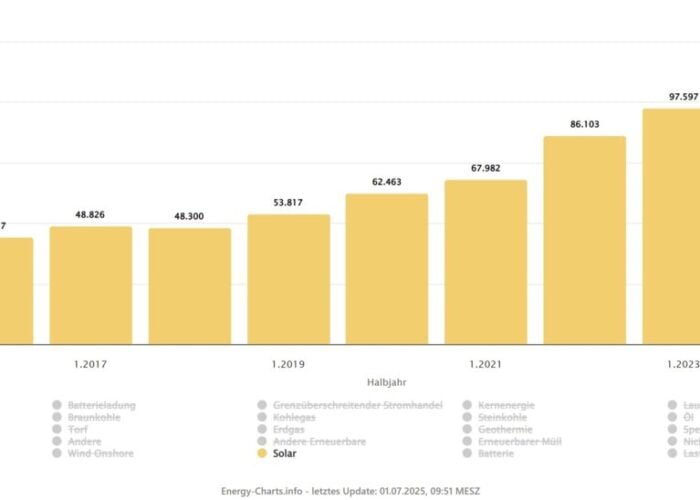
As the global solar sector grows, in both scale of deployments and volume of capital, there is an increasingly unwieldy volume of information in the industry. Data concerning optimal solar irradiance hours, plant performance and equipment maintenance and repair are all becoming increasingly commonplace in the solar sector, but this abundance of information could bring as many challenges as opportunities for a sector undergoing rapid change.
A number of companies have sought to tackle these challenges, including Lithuania-headquartered PVcase, a software-as-a-service company that has launched a number of programmes to enable solar project design and optimisation. Last year, the company raised US$100 million in funding to address what it calls the “data risk” present in the solar sector, as companies not familiar with data analysis and management are suddenly required to process and interpret data on an ever-growing scale.
Unlock unlimited access for 12 whole months of distinctive global analysis
Photovoltaics International is now included.
- Regular insight and analysis of the industry’s biggest developments
- In-depth interviews with the industry’s leading figures
- Unlimited digital access to the PV Tech Power journal catalogue
- Unlimited digital access to the Photovoltaics International journal catalogue
- Access to more than 1,000 technical papers
- Discounts on Solar Media’s portfolio of events, in-person and virtual
In the first of PV Tech Premium’s Big Interview series, which will see industry leaders and c-suite executives bring their expertise to these pages, we speak to PVcase founder and CEO David Trainavicius about these topics.
Alongside his work with PVcase, he is a founder and board member of DETRA, a global solar engineering and consulting firm. He has consulted for over 100 companies on solar projects worth over €500 million (US$536.4 million) and is well-positioned to discuss the changes affecting the solar industry’s relationship with data on a global scale.
PV Tech: What challenges in the solar sector does PVcase aim to tackle?
David Trainavicius: PVcase tackles several major problems in the solar sector. First, the shortage of skilled labour. The solar industry is facing a dire shortage of skilled workers – and it won’t be possible to train enough people to fill the gaps any time soon.
We’ve pointed to a critical problem throughout the industry: data risk. As data gets transferred between different companies’ and consultants’ software throughout a solar project, it often gets altered, lost and corrupted. That ultimately diminishes the performance of the project, so much that it may fail to meet its expected power output.
In general, we address the rising ‘soft costs’ of solar development. These soft costs – such as project design and picking a site – still account for nearly 40% of project costs, which is an alarmingly high share.
PVcase offers a suite of integrated products to address these three challenges: Ground Mount, an AutoCAD-based solar design software that enables engineers to design solar plants up to 30 times faster; and Roof Mount, [another] AutoCAD-based tool with a high level of precision … one of our clients estimated that our software produces time savings of 60-70%.
[PVcase also offers] Yield, a cloud-based energy modelling software for solar PV systems; [and] Anderson Optimization by PVcase, a GIS and site selection software [that] uses automated constraint analysis and filters to identify the most productive development sites available.
What kind of ‘data risks’ are PV developers and operators exposed to today?
Data degrades quickly over the course of a project. A typical solar project involves a myriad of steps, including market analysis, financing, site selection, design, yield estimation, construction monitoring, operation and maintenance and asset management. 30 or more different companies, suppliers, and consultants may be needed to complete all of these steps.
But each entity uses different data formats, units of measurement and margins of error. There is no centralised technology to integrate and streamline all their data, so data gets altered as it transfers between companies. It’s often conveyed in static file formats such as PDFs, which just makes the situation worse.
At its most basic level, it’s like a giant game of telephone. The data starts in one form, but as it goes through different entities, it ends up entirely different.
An outside observer might say, “Just be more careful with the data as it transfers from one entity to another.” But it requires an enormous amount of staff power and time to sift through thousands upon thousands of data points and guarantee accuracy. That time and resources would be much better spent elsewhere while advanced technology picks up the slack.
Data challenges in the solar industry have certainly changed over time. Years ago, the issue was acquiring data in the first place, plus keeping track of it all. Now, we have the ability to gather more data than ever before, and we have some software in place to manage this huge data flow.
But too many people still aren’t using advanced technology to ensure the quality of all this data.
Is there anything that can be done to mitigate this risk?
PVcase is now building a platform to design, analyse and optimise renewable energy assets globally.
Our vision is for all the companies and consultants involved in project development to be able to use a single, centralised system to input, manage and track data. This will save on the staff hours needed, ensure the accuracy of the data and reduce the soft costs of development.
Data risk has enormous implications for the industry. For one, projects can underperform. We’re already seeing this play out. Many projects have fallen short of expectations, but it’s difficult for developers to pinpoint why. If projects in the solar industry continue to underperform, it diminishes trust in the industry overall. That stalls investment in new solar plants and slows down our journey to a net-zero economy.
The industry has gotten to the point where we have enough data to make sound decisions. That’s a major milestone. But now, the primary challenge is compiling and processing all of those data points quickly and efficiently.
How would you overcome challenges, such as a lack of available data with which to interact, particularly for more remote areas of the planet?
The lack of available data is indeed a challenge in many regions around the world, and you don’t have to go to remote regions of the planet to encounter those issues. Accessing high-quality geographical or grid availability data is still a challenge in many European countries.
This said, there are some high-quality datasets with global coverage already available, for example in the meteorological data space. So it’s not all bad.
Regardless, while some of our products have built-in data, PVcase is not primarily a data provider. Our tools enable our users, who may be paying significant amounts of money for a detailed topographical survey of a particular piece of land, for example, to use this data to its fullest extent and extract the most value out of it.
So we aren’t looking to address the lack of quality data. We are tackling data risk. This means ensuring that the data used to develop a project, as well as the data created while developing a project from the earliest to the most advanced stages of its lifecycle, does not degrade, can be properly managed, and can be easily accessed when needed.
Do you expect the relationship between operators and data to change in the coming years?
Our sector is already realising the importance of sourcing high-quality data and managing it appropriately; this is part of the reason behind the success of PVcase products. This applies to all types of players, big or small, who are looking to make decisions based on trustworthy information.
Developing projects requires managing ever-growing project development pipelines and making high-stakes decisions that can make or break a project. To address this, companies are developing makeshift tools that can help them aggregate data. But this is effort-intensive, and the tools they’re using tend not to be adapted to the specifics of developing an energy project.
If you look at projections for installed capacity globally, you know this trend is only going to grow. This is why we are moving to develop an overall platform that can facilitate the management of renewable projects at each stage of development and accelerate the energy transition even more.
What is the role of other technologies, such as automation and AI, in the solar space?
AI has the potential to play a role in solar development. But for robust AI to become feasible in PV, and deployable at scale, we first need to make sure that PV asset data is available in standardised, quality-checked, labelled, and clean formats.
You may have the smartest AI model, but if the data it is fed is garbage, the output is going to be garbage or, at best, smart garbage. In other words, AI doesn’t do much good if the data going in is inaccurate. We’ve seen this play out.
We’re part of TRUSTPV, an EU-funded research and development consortium. One of its goals is to research the feasibility of a data-driven ‘decision support platform.’ The lesson has been that data collection and uniformity must be the cornerstone of any AI endeavour.
One key technology we are quite excited about is digital twins, which can reduce data risk issues when commissioning and managing existing assets, and facilitate the re-use of PV project data and information. Part of our research and development efforts are aimed at exploring this further in partnership with leading project developers, asset owners, and peer software companies.







